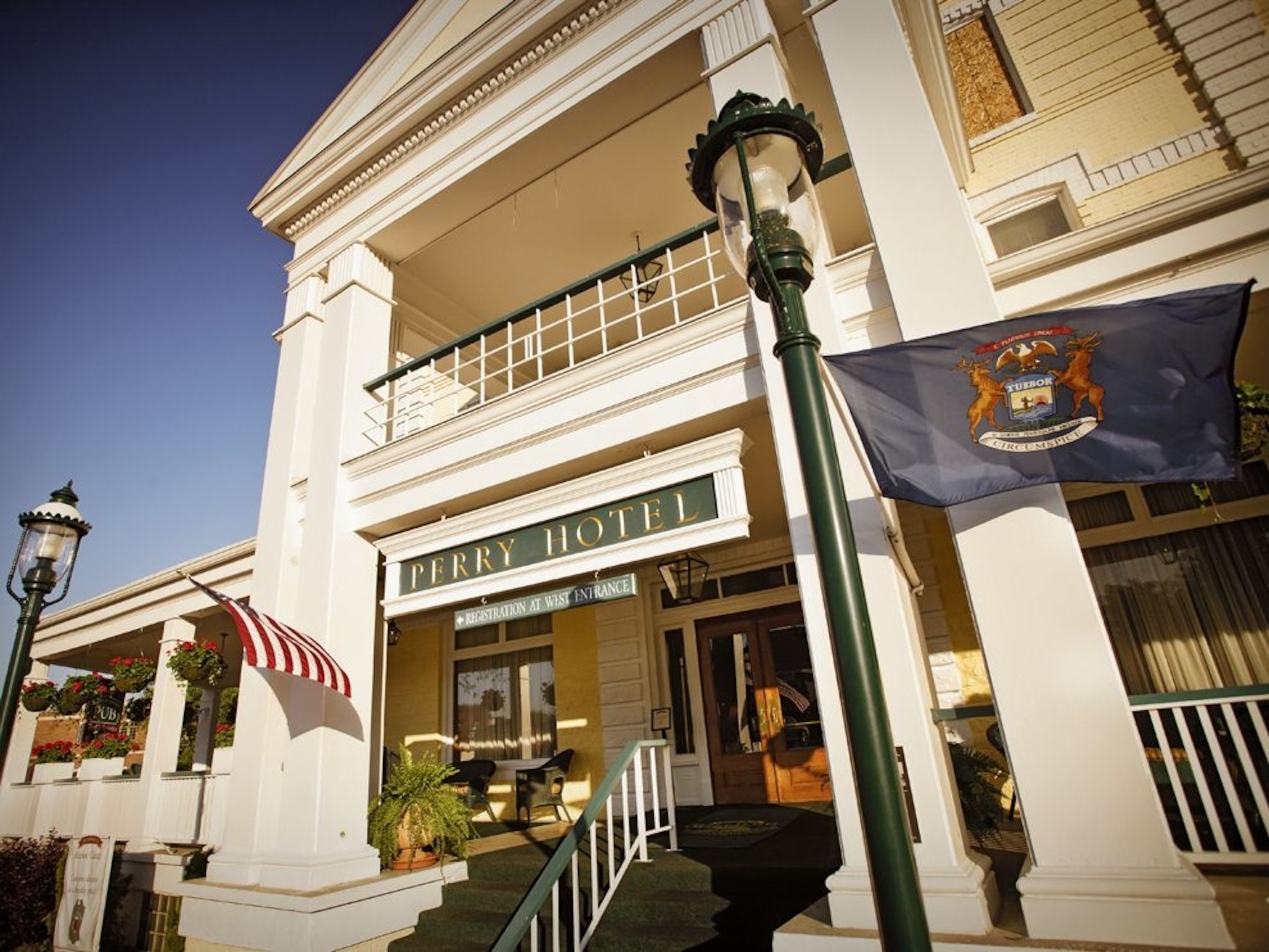
Summer at the Lake: Walloon Lake
From the June/July 2012 issue of National Geographic Traveler
The Ice Age was kind to northern Michigan, leaving in its wake an undulating landscape pocked by thousands of deep lakes carved by receding glaciers. Few, though, are as striking as Walloon Lake. Soil rich in calcium carbonate and clay, known as marl, casts the water a cerulean blue that would conjure the Caribbean were it not for the cedars, birches, and aspens that frame the nearly 30-mile shoreline. Its odd, paint-splat shape ensures that no view is the same; even longtime cottagers marvel at the difference in perspective from just a few doors down.
Lured by the fresh Arctic air, Midwesterners eager to escape the summer swelter of Detroit and Chicago began coming to Walloon on the Grand Rapids and Indiana Railroad in the late 19th century. Once they reached the village at the eastern end of the lake, a “dummy train” would bring them to a steamboat that ferried them to their cottage.
Among them were Clarence and Grace Hall Hemingway from Oak Park, Illinois, who built their cottage, Windemere, on the north end of the lake in 1899, the same year their son Ernest was born. The lake instilled a love of the outdoors in the novelist and inspired a series of short stories, including “The Three-Day Blow.” “The genesis for all the Nick Adams stories was Walloon Lake,” says Hemingway’s nephew Ernie Mainland, referring to the author’s semiautobiographical protagonist. Mainland, who now owns Windemere, reminisces about his boyhood summers in the 1950s when mothers and children spent June through Labor Day here and dads dropped in from the city on weekends. A fleet of sleek mahogany sailboats raced twice a week, and the water was so crystal clear, “if you were sailing and got thirsty, you reached over and drank from the lake,” says Mainland.
These days, motorboats outnumber sailboats and the lake is battling the invasive zebra and quagga mussels. Still, a sense of legacy remains strong. Many Wallooners are descendants of those who bought property here generations ago and feel more connected to the lake than to the places where they grew up. “Invariably, it’s your grandparents or great-grandparents that first began coming here,” says David Crouse, a television producer whose family has been summering on Walloon since 1895. He made the move to full-time resident ten years ago and is reminded why every time he comes home from his frequent travels: “When you step out into the night air, you smell that woodsy cedar smell. It welcomes you home. It goes to your soul.”
You May Also Like
Go Further
Animals
- Octopuses have a lot of secrets. Can you guess 8 of them?
- Animals
- Feature
Octopuses have a lot of secrets. Can you guess 8 of them? - This biologist and her rescue dog help protect bears in the AndesThis biologist and her rescue dog help protect bears in the Andes
- An octopus invited this writer into her tank—and her secret worldAn octopus invited this writer into her tank—and her secret world
- Peace-loving bonobos are more aggressive than we thoughtPeace-loving bonobos are more aggressive than we thought
- Why are these emperor penguin chicks jumping from a 50-foot cliff?Why are these emperor penguin chicks jumping from a 50-foot cliff?
Environment
- U.S. plans to clean its drinking water. What does that mean?U.S. plans to clean its drinking water. What does that mean?
- Food systems: supporting the triangle of food security, Video Story
- Paid Content
Food systems: supporting the triangle of food security - Will we ever solve the mystery of the Mima mounds?Will we ever solve the mystery of the Mima mounds?
- Are synthetic diamonds really better for the planet?Are synthetic diamonds really better for the planet?
- This year's cherry blossom peak bloom was a warning signThis year's cherry blossom peak bloom was a warning sign
- The U.S. just announced an asbestos ban. What took so long?The U.S. just announced an asbestos ban. What took so long?
History & Culture
- This ancient cure was just revived in a lab. Does it work?This ancient cure was just revived in a lab. Does it work?
- See how ancient Indigenous artists left their markSee how ancient Indigenous artists left their mark
- Why Passover is one of Judaism’s most important holidaysWhy Passover is one of Judaism’s most important holidays
- Is this mass grave a result of contagion—or cannibalism?Is this mass grave a result of contagion—or cannibalism?
- The surprising story of how chili crisp took over the worldThe surprising story of how chili crisp took over the world
- We swapped baths for showers—but which one is better for you?We swapped baths for showers—but which one is better for you?
Science
- Why outdoor adventure is important for women as they ageWhy outdoor adventure is important for women as they age
- 4 herbal traditions used every day, all over the world4 herbal traditions used every day, all over the world
- Ground-level ozone is getting worse - here's what that meansGround-level ozone is getting worse - here's what that means
- Would your dog eat you if you died? Get the facts.
- Science
- Gory Details
Would your dog eat you if you died? Get the facts.
Travel
- Why it's high time for slow travel in Gstaad
- Paid Content
Why it's high time for slow travel in Gstaad - The travel essentials we’re most excited for in 2024The travel essentials we’re most excited for in 2024
- How citizen science projects are safeguarding Costa Rican pumasHow citizen science projects are safeguarding Costa Rican pumas




